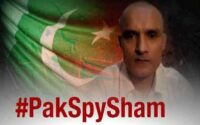RESTRICTION OF INTERNET SERVICES IN J&K: IS IT JUSTIFIED?
This article has been written by Anushka Sharma, a student of Delhi Metropolitan Education GGSIPU.
Internet speed has been restricted in the Union Territory of Jammu and Kashmir for several months. The restrictions were further extended till 11th of May, 2020 after the latest order was issued on 27th of April, 2020. Around three petitions were filed challenging the restriction of internet services. These three petitions were based on the same issue of non-availability of internet services in the lockdown which in leading to hindering of the online education and health services among other essential virtual services. A petition was filed by the Foundation for Media professionals to revoke the restrictions imposed on the availability of internet services in the Union Territory of Jammu and Kashmir and the Supreme Court on 11th of May, 2020 refused the restoration of 4G internet services in the Union Territory of Jammu and Kashmir. Additionally, it also formed a special committee comprising of Home Secretary, Secretary to Ministry of Communications, Government of India, and Chief Secretary of the Union Territory of Jammu and Kashmir and this committee would be headed by the Home Secretary.
Currently, there is availability of 2G services post-paid customers and verified prepaid services but the question which arises here is how will the Union Territory function without internet services?
During the pandemic, the educational institutions are completely dependent on virtual internet platforms for imparting education and the 2G internet services provided to the Union Territory are not sufficient for smooth online lectures and webinars and this, in turn, is hampering the education of the students living there. Most of the activities like webinars, competitions, lectures are taking place virtually and the non-availability of smooth and good internet services are making the students lag behind students of other countries and states. The educational facilities provided to the students are very crucial and therefore should have been addressed by the Apex Court. Although the Apex Court took the submission by the Union Territory to be evidentially true, it essentially faulted and logically failed to equate platforms like DD National and radio telecasting with the mainstream e- learning/ virtual learning methods.
The reasons for which the Court withdrew 4G services were rise of terrorist attack, militancy, and brainwash/propagandising in the Union Territory of Jammu and Kashmir by using internet as their medium. The counter-arguments to this stance are that firstly, it can be prevented by restricting internet services to the hotspot areas and secondly, the activities mentioned above can be carried on even with 2G services and other communication means and therefore, there is no way through which denying 4G services can benefit the civilians or protect them, instead it is making life during quarantine difficult for them because internet is the only mechanism through which people can keep themselves majorly occupied.
The author believes that by restricting internet services even normal civilians might indulge in ill-practices making the situation worse.
Secondly, because of the pandemic the courts are discharging or hearing judgements virtually and non-availability of e-connectivity is making the situation worse because no court in the Union Territory is able to discharge essential judicial functions as there is a lack of smooth internet services.
Thirdly, because of lack of internet services it would be difficult to get brief information about the situation around them.
Now, if we look closely to this issue it also violates the fundamental rights of the citizens guaranteed under the Constitution of India. The right to education and right to health which come under the right to life and liberty expressed/stated in Article 21 of the Constitution, are getting violated. The order also went against the Supreme Court verdict given in Anuradha Basin case in which the conclusion given was to provide safeguards against the misuse of powers under the Telecom rules.
The order also has some unconsidered disputes and the following have been mentioned below:
Firstly, the unavailability of smooth internet services promotes or exaggerates the problem existing in the Union Territory as the citizens are denied the proper services to cross-check any information received by them.
Secondly, the fundamental rights of citizens are getting hampered and because of this outbreak the citizens are mostly dependent on internet services to avoid getting affected mentally by the fear of the pandemic.
Thirdly, almost all the nations in the world practise information warfare and denying services would not solve the problem permanently. Instead of doing this, proper permanent measures should be taken to curb this issue.


